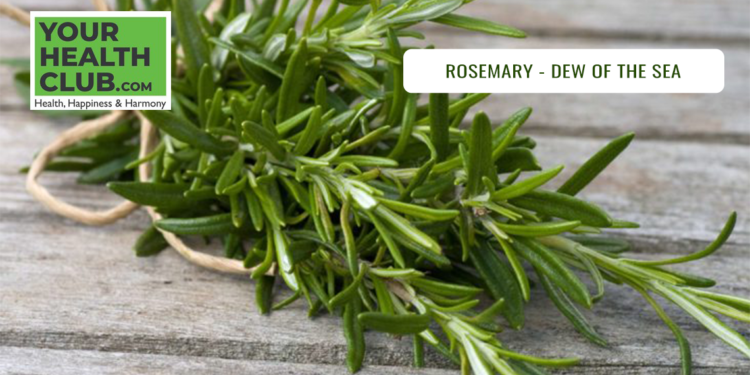Rosemary – Dew of the Sea
Rosemary Widely known as a culinary herb, rosemary belongs to the Labiatae family and has been used in traditional medicine for centuries. Rosemary essential oil has a woody scent and is considered a staple in aromatherapy. However, rosemary oil has a wide range of uses, from treating pain to stimulating hair growth, so it’s handy to have on hand at home.
The name rosemary, which means “dew of the
Sea,” is derived from the Latin words “ros” (dew) and
“marinus” (sea), and it refers to a fragrant herb that is endemic to
the Mediterranean region. It also grows in Mexico, the USA, England, and
Morocco in northern Africa. Rosmarinus Officinalis is an aromatic herb that
belongs to the Mint family, which also includes Basil, Lavender, Myrtle, and
Sage. It is known for its characteristic scent, which is characterized by an
invigorating, evergreen, citrus-like, herbaceous scent. Flat pine needles with
a little silver tinge give it a similar aspect to lavender in terms of
appearance.
Ancient Greeks, Egyptians, Hebrews, and Romans
revered rosemary as a sacred plant and employed it for a variety of purposes,
including incense, protection, memory enhancement, and serving as a constant
reminder of the life-death cycle.
The highest quality rosemary essential oil is extracted from the plant’s flowering tops.Most people are familiar with the energizing, calming, and pain-relieving effects of rosemary essential oil.
Benefits of Rosemary;
Combat
Gastrointestinal Stress
Several gastrointestinal symptoms, such as
indigestion, gas, stomach cramps, bloating, and constipation, can be relieved
with rosemary oil. Additionally, it increases hunger and aids in controlling
bile production, which is essential for digesting. Massage your belly gently
with a mixture of 1 teaspoon carrier oil—such as coconut or almond oil—and 5
drops of rosemary oil to relieve stomach issues. This method of routinely using
rosemary oil detoxifies the liver and enhances gallbladder function.
Reduce Pain and
Inflammation
By applying rosemary oil to the problematic
area and massaging it in, you can take advantage of its anti-inflammatory and
pain-relieving effects. To make a potent salve, use 1 teaspoon of a carrier oil
with 5 drops of rosemary oil. Use it to treat rheumatism, arthritis, sprains,
muscle tightness, and headaches. A hot bath with a few drops of rosemary oil
added is another option.
Treat
Respiratory Problems
When inhaled, rosemary oil acts as an
expectorant to clear up throat congestion brought on by colds, flus, and
allergies. Because of its antiseptic qualities, the scent can help treat
respiratory illnesses when inhaled. Additionally, it possesses antispasmodic
properties that support the treatment of bronchial asthma. Use rosemary oil in
a diffuser or add a few drops to a cup or small pot of boiling water and
breathe in the steam up to three times a day.
Promote Hair Growth
and Beauty
When massaged into the scalp, rosemary
essential oil has been reported to accelerate the development of new hair by
22%. It can be used to promote new hair development in balding areas, lengthen hair,
or prevent baldness because it stimulates scalp circulation. Rosemary oil is a
fantastic tonic for general hair health and beauty because it also delays
graying, encourages shine, and prevents and lowers dandruff.







